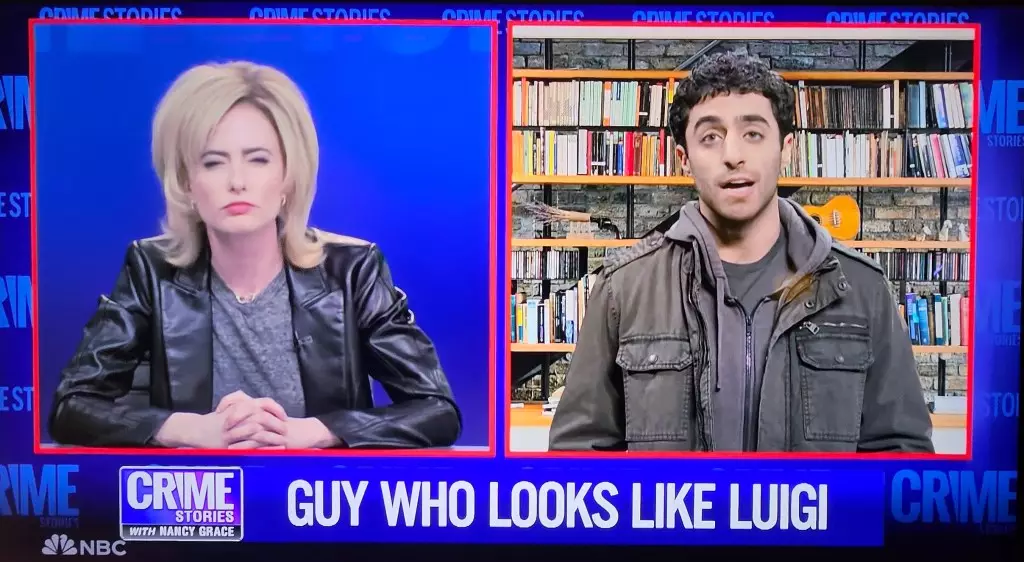Saturday Night Live (SNL) has a long history of biting satire and cultural commentary, and its recent cold open featuring Nancy Grace reflected that tradition. The segment cleverly tackled the sensationalism that often surrounds crime in the media, particularly in light of the supposed “healthcare assassin,” Luigi Mangione. The episode aired amid a week rich with political fodder, prominently featuring Donald Trump. This juxtaposition brings into focus the way SNL frequently navigates the murky waters of current events, poking fun at public figures while simultaneously inviting its viewers to ponder the narratives being spun around them.
In a world where crime stories eclipse many traditional news outlets, Nancy Grace remains a polarizing figure owing to her highly stylized, emotional reporting. SNL’s choice to parody her serves to both ridicule and highlight the fascination society has with criminal cases and the figures entangled in them. This is especially relevant when such cases generate a fan club for individuals like Mangione, who has been accused of heinous acts but is ironically characterized as a “sex symbol” in some pockets of social media.
In her portrayal, Sarah Sherman skillfully captures the essence of Grace’s sensationalist rhetoric while simultaneously mocking the audience’s willingness to idolize criminals. The satirical exaggeration of Grace’s outrage resonates well, as Sherman points out the absurdity of Mangione’s newfound allure, emphasizing that “this man is not a sex icon, okay. This man is… a murderer!” It paints a stark picture of society’s troubling obsessions, probing deeper into how public perception can be swayed by media sensationalism.
What starts as a critique of this phenomenon, however, soon spirals into a repetitive cycle of dull jokes concerning the supposed allure of the “sexy slayer.” The segment, while initially engaging, comes alarmingly close to undermining its own effectiveness through overused humor, recycling themes without providing fresh or meaningful insight. Sherman’s performance is commendable, but as the routine continues, the energy wanes, and the biting satire loses its edge.
SNL’s tendency to invite past cast members and iconic personalities as hosts and guests taps into a reservoir of nostalgia. Chris Rock’s return for this episode signifies not only his stature as a comedian but also SNL’s deep-rooted tradition of homage, drawing in viewers who cherish its history. The juxtaposition of the current segment against this larger celebratory context demonstrates SNL’s recognition of its own longevity and evolution.
It’s fascinating to observe how SNL navigates the balance between the complex stories of today and the comedic elements reminiscent of yesteryear. The subsequent announcement of Martin Short hosting in an upcoming episode serves as a reminder of the rich tapestry of comedic influences that have graced the SNL stage, marrying the sharpness of traditional sketch comedy with the nuances of contemporary political discourse.
As SNL prepares for its 50th anniversary with an upcoming primetime special, the question arises: what does the future hold for such a deeply entrenched institution in American comedy? Will it continue to innovate and explore new avenues for satire, or will it become ensnared in its own legacy, providing worn-out routines that fail to capture the zeitgeist?
The cold open featuring Nancy Grace encapsulates the tightrope SNL must walk—one where humor reflects reality while inviting introspection about the absurdities of life. As comedians like Sherman embody the critiques of contemporary culture, the hope remains that SNL will evolve, adapting its humor to resonate with new generations while still paying tribute to its foundational principles. In this ever-changing landscape, the challenges are plenty, but the opportunities for compelling satire remain invaluable.

